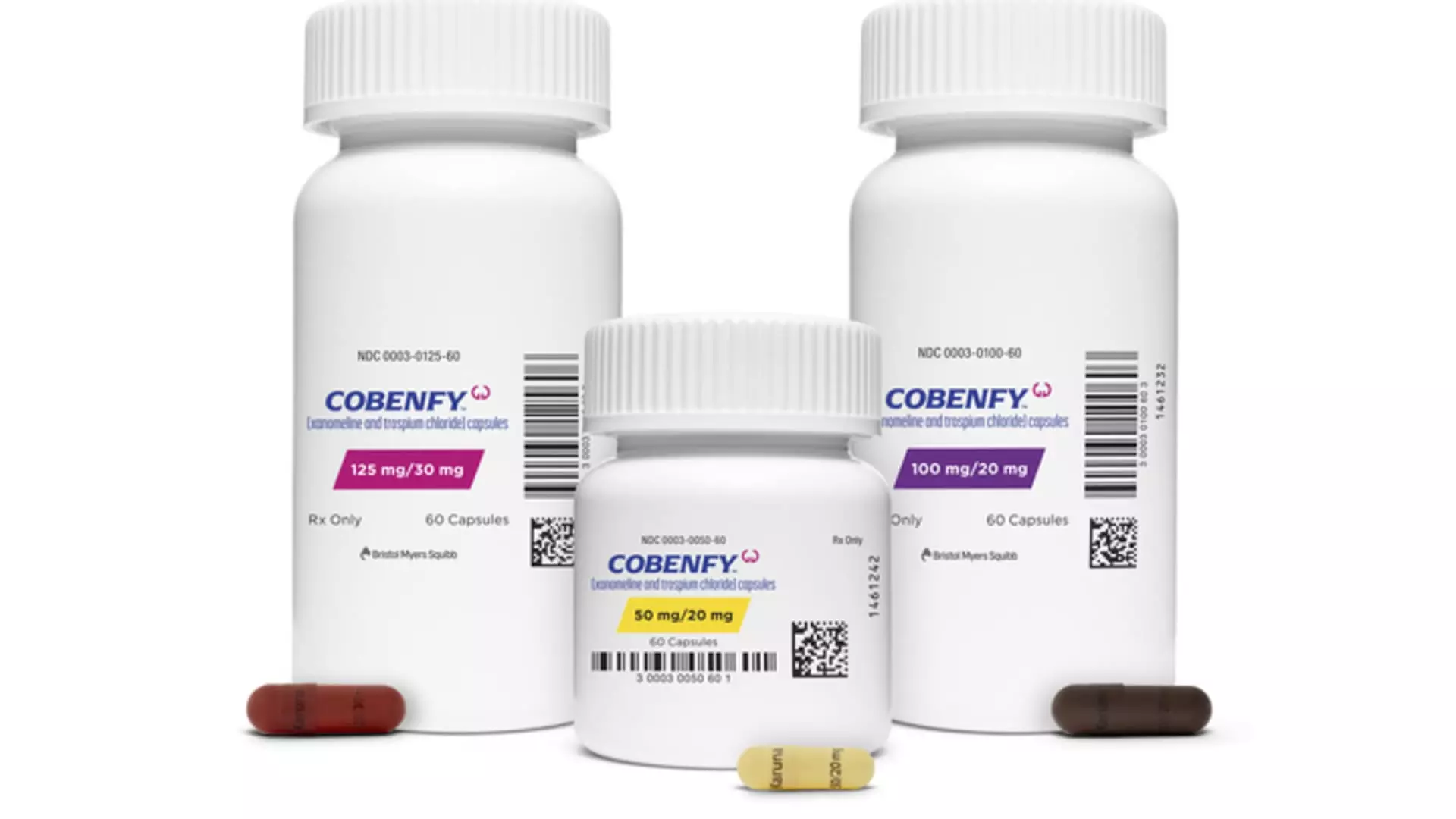On a significant day for modern medicine, the Food and Drug Administration (FDA) gave the green light to Bristol Myers Squibb’s revolutionary schizophrenia medication, Cobenfy. This landmark approval marks the introduction of the first new class of treatment for schizophrenia in over seventy years, a notable achievement that could reshape the treatment landscape for individuals suffering from this debilitating mental disorder.
Schizophrenia is an insidious condition, significantly impairing one’s ability to think clearly, manage emotions, relate to others, and function effectively in daily life. It triggers an array of distressing symptoms like paranoia, hallucinations, and delusions, often manifesting in late adolescence to early adulthood. With approximately three million adults in the U.S. enduring the struggles of schizophrenia, the arrival of Cobenfy is not just timely; it could be transformative.
Current antipsychotic medications, which predominantly block dopamine receptors in the brain, have been the mainstay of treatment, but they pose significant challenges. Many patients experience distressing side effects, including weight gain and uncontrolled movements, which often lead to discontinuation within just 18 months. Reports indicate that around 75% of individuals battling schizophrenia give up on available treatments, underscoring the urgent demand for more effective and tolerable options.
Cobenfy emerges as a potentially game-changing solution, as it operates from an innovative perspective that does not rely on the traditional dopamine-blocking mechanism. Medical experts express optimism about this dual-action approach, comprising xanomeline for activating muscarinic receptors, thus mitigating dopamine activity without the harsh side effects, and trospium to alleviate common gastrointestinal issues associated with treatment.
From a commercial standpoint, Cobenfy is positioned as a potential blockbuster for Bristol Myers Squibb, especially in light of expiring patents on their existing products. Priced at approximately $1,850 for a 30-day supply, the drug’s cost raises critical questions about accessibility. While the company claims its pricing aligns with other branded treatments, many lower-cost generics are readily available, making Cobenfy a challenging prospect for uninsured patients or those with significant out-of-pocket expenses.
The company asserts it intends to launch initiatives to make Cobenfy more affordable for patients, especially for those relying on Medicare and Medicaid. Approximately 80% of schizophrenia patients are covered by government insurance, but the specifics of these affordability programs remain to be outlined. The stark contrast between Cobenfy’s pricing and that of generics, such as Abilify, which can cost as little as $16, could restrict its adoption among patients, forcing many to persist with less effective treatments.
Despite these challenges, Bristol Myers Squibb’s executives convey an optimistic outlook regarding Cobenfy’s role in broader schizophrenia treatment protocols. The drug’s introduction is seen not only as a necessary tool for healthcare providers but also as an opportunity to foster a greater awareness of schizophrenia and to address the stigmas surrounding the condition. Andrew Miller, former president of research and development at Karuna Therapeutics, emphasizes the need for transformational discussions and research on schizophrenia, stressing the long-term importance of Cobenfy in enhancing patient outcomes.
While Cobenfy has passed rigorous clinical trials demonstrating its efficacy, experts caution that it may primarily find its initial use among those patients who have already exhausted other treatment options. This is indicative of a healthcare system often bound by cost considerations, where insurance practices dictate the lines of treatment rather than purely clinical efficacy.
The FDA’s approval of Cobenfy is only the beginning of what might be possible in the arena of psychiatric therapies. Bristol Myers Squibb is exploring its potential for treating other disorders, including Alzheimer’s-induced psychosis, suggesting that Cobenfy could have broader implications beyond just schizophrenia.
Ultimately, the introduction of Cobenfy serves as a hopeful beacon for patients and healthcare providers alike, promising a future where innovative treatment options may lead to better management of schizophrenia and more robust conversations around mental health. As we look ahead, the critical test will be the real-world effectiveness of this medication and its ability to overcome barriers to access and implementation in clinical practice.
Cobenfy represents not just a new medication but also an attempt to redefine how schizophrenia is treated and discussed, encouraging a shift toward a more inclusive and effective mental health care landscape.

